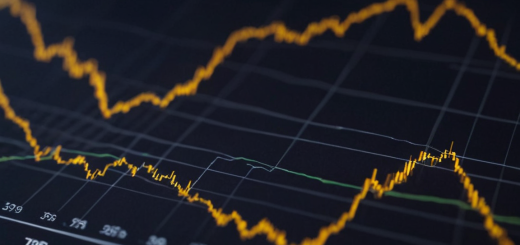Embracing the Digital Future: How Blockchain Technology is Revolutionizing Our World
The Blockchain Revolution: A New Era of Digital Trust and Security
As we delve deeper into the digital age, blockchain technology emerges as a beacon of innovation, redefining the way we perceive security, privacy, and trust in the virtual space. This transformative technology has burgeoned beyond its initial cryptocurrency roots to influence numerous sectors including finance, healthcare, and governance. In this comprehensive blog post, we explore the multifaceted impacts of blockchain technology, its current adoption, and the potential it holds for a decentralized future.
The Genesis of Blockchain
Blockchain technology, introduced as the underpinning structure for Bitcoin in 2008, is essentially a ledger system that records transactions across several computers in such a way that the record cannot be altered retroactively. This concept of decentralization and transparency quickly captured the interest of innovators worldwide.

Blockchain Today: Cutting-edge Applications and Developments
Today, blockchain has transcended its primary role in digital currencies to secure all forms of data exchange. Let’s explore some of the groundbreaking applications currently reshaping industries:
- Finance: Decentralized finance (DeFi) is leveraging blockchain to bypass traditional banking, enabling peer-to-peer lending and borrowing.
- Healthcare: Patient records are being encrypted and stored on blockchains, providing secure, immutable, and universally accessible data.
- Supply Chain Management: Blockchain’s transparency aids in tracking the provenance and authenticity of products, from farm to table.

Expert Opinions
Many experts believe blockchain is the next big wave of technological disruption, with the potential to create new foundations for our economic and social systems. – Don Tapscott, Blockchain Research Institute
The Real-world Impact of Blockchain Adoption
Blockchain’s reach is already tangible. For instance, in the food industry, companies like Walmart use blockchain to quickly trace the origin of food products, enhancing consumer safety. In finance, companies like Ripple provide cross-border payment solutions using blockchain technology.

Challenges and the Future Outlook
Despite its clear advantages, blockchain faces challenges, including scalability issues, energy consumption, and a need for regulatory frameworks. Every revolutionary technology encounters hurdles that must be overcome. With the pace of blockchain innovation, coupled with rising interest from the public and private sectors, we are likely to see these challenges tackled as the world leans into a more decentralized and transparent future.

In conclusion, blockchain is not just a technological fad but a pivotal foundation for a trustworthy digital tomorrow. As we venture into this unknown future, blockchain promises a new paradigm where integrity, security, and accessibility are paramount.
Call-to-Action: Stay informed and be prepared for the blockchain revolution. We encourage readers to continue exploring this technology, consider its implications on your industry, and engage with blockchain initiatives to experience its transformative power firsthand.






